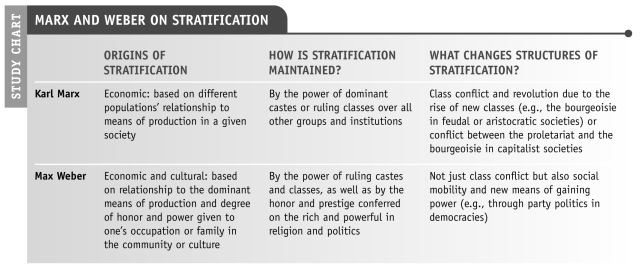Exam 10: Stratification and Global Inequality
Exam 1: Sociology: An Introduction175 Questions
Exam 2: The Tools of Sociology167 Questions
Exam 3: Culture155 Questions
Exam 4: Societies and Nations172 Questions
Exam 5: Socialization167 Questions
Exam 6: Interaction in Groups163 Questions
Exam 7: Sexuality150 Questions
Exam 8: Deviance and Social Control179 Questions
Exam 9: Collective Behavior, Social Movements, and Mass Publics157 Questions
Exam 10: Stratification and Global Inequality164 Questions
Exam 11: Inequalities of Social Class163 Questions
Exam 12: Inequalities of Race and Ethnicity184 Questions
Exam 13: Inequalities of Gender113 Questions
Exam 14: Inequalities of Youth and Age112 Questions
Exam 15: The Family155 Questions
Exam 16: Religion129 Questions
Exam 17: Education121 Questions
Exam 18: Economic Institutions146 Questions
Exam 19: Politics and Political Institutions166 Questions
Exam 20: Health and Medicine73 Questions
Exam 21: Population, Urbanization and the Environment157 Questions
Exam 22: Global Social Change182 Questions
Select questions type
 -As shown in the study chart below (Marx and Weber on Stratification), in what ways in addition to wealth are individuals stratified according to Max Weber?
-As shown in the study chart below (Marx and Weber on Stratification), in what ways in addition to wealth are individuals stratified according to Max Weber?
(Multiple Choice)
4.8/5  (35)
(35)
Progress toward reach the goals set forth by the United Nations in their World Millennium Development Goals has been uneven at best.
(True/False)
4.8/5  (40)
(40)
The single most important factor in determining survival in any culture is
(Multiple Choice)
5.0/5  (32)
(32)
Functionalists believe that stratification is inevitable and socially necessary.
(True/False)
4.9/5  (39)
(39)
Which of the following is an example of an ascribed status?
(Multiple Choice)
4.8/5  (34)
(34)
The stratification system in the United States can best be classified as:
(Multiple Choice)
4.8/5  (41)
(41)
The ways in which we present ourselves to others in terms of our body language, dress, speech, and manners is called deference.
(True/False)
4.8/5  (28)
(28)
All of the following are micro level factors in social stratification EXCEPT:
(Multiple Choice)
4.8/5  (33)
(33)
In terms of standard of living, the majority of people in the U.S. perceive that they are
(Multiple Choice)
4.7/5  (32)
(32)
In the United States, life chances and job opportunities are determined by the stratification system.
(True/False)
4.8/5  (42)
(42)
The Russian Revolution kindled hopes of a classless society among impoverished people throughout the world.
(True/False)
5.0/5  (31)
(31)
In all societies, systems of inequality tend to be supported by a fairly elaborate ideology.
(True/False)
4.8/5  (34)
(34)
In complex societies, families and other social groups are classified into:
(Multiple Choice)
4.9/5  (37)
(37)
A major consequence of the Industrial Revolution was relationships based on contracts instead of ascription.
(True/False)
4.8/5  (33)
(33)
Thomas Helmsley earns $100,000 a year as an account representative for a major advertising firm. He believes that he has earned his wealth because he has talents and abilities that most other people do not have. He also believes that he makes a contribution that in the long run is necessary for society. Helmsley is employing which of the following perspectives?
(Multiple Choice)
4.8/5  (37)
(37)
Movement by an individual or group to a higher stratum is termed:
(Multiple Choice)
4.7/5  (46)
(46)
The mechanization of agriculture that coincided with the Industrial Revolution eliminated the need for small farmers and peasants. Such changes are an example of which of the following?
(Multiple Choice)
5.0/5  (35)
(35)
State briefly the core idea of the functionalist perspective on stratification.
(Essay)
4.8/5  (32)
(32)
Showing 21 - 40 of 164
Filters
- Essay(0)
- Multiple Choice(0)
- Short Answer(0)
- True False(0)
- Matching(0)